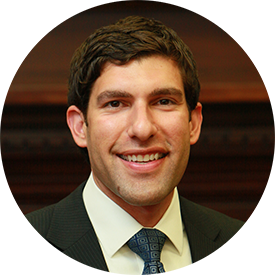Personal Wealth Management / Book Reviews
End the Fed
A political manifesto? Yes, but Ron Paul's book deriding the Fed is also one of the best layperson's primers on central banking in years.
End the Fed- by Ron Paul
Congressman Ron Paul is now chair of the Monetary Policy subcommittee, which means he's effectively chief antagonist to Ben Bernanke. Paul is a pure-form libertarian (read: pure-form tea partier), an ardent student of Austrian economics (read: laissez faire, free market capitalism), and has staunchly voiced his opposition to the very existence of the Federal Reserve every chance he gets.
With the new Congress fully installed, now seems the right time to have a look at Paul's short but well-executed 2009 book, End the Fed. Of course, this is a political document, and on that basis it's easy to see why Paul's been around so long and did better than most expected in his 2008 presidential run—he's a gifted communicator, able to exude down-to-earth everydayness, good humor, prudence, and practicality, but coupled with that eagle-eyed vision, intellect, and steadfastness that are the rhetorical hallmarks of most great public executives (be they CEO or president). Everything he writes sounds sensible, trustworthy, wonderful. You'd so like to have a drink with this gentleman.
This means, to really get value out of End the Fed, you have to work hard to be constantly vigilant of this layer of political rhetoric, especially when he relates stories about how he learned about money and saving as a kid from his father, as well as his encounters with economist Ludwig Von Mises and curmudgeonly philosopher Ayn Rand.
Past that, it turns out End the Fed is a great primer on how money, money creation, and central banking works. On some level, it's refreshing to read a high-profile legislator write in such learned fashion on the issues he must, you know, legislate on.
Paul operates from the basic philosophical position that principles are more important than practicality. This is the crux of pure libertarianism. That is, panic of 2008 be darned, the Fed/Treasury/Congress had no business bailing out beleaguered banks—to a libertarian such intervention is morally wrong. In fact, in Paul's view, liberty and freedom are antithetical to the way markets and banking are set up today. Because of moral hazard and the now-inextricable relationship between banks and the government, there really isn't much true capitalism anymore. Instead, he describes today's banking as a kind of public-private entity. Financial markets are really largely beholden to central planning of the government (he says), and the government has been manipulating the economy for many decades—from inflation to savings rates and basically all in between. He'd rather see the world do away with central banking altogether and return to the gold standard. (But he's not really a "gold bug" per se. Paul says very clearly he doesn't care if it's gold or something else money is directly tied to—he just doesn't want the government to control money supply.)
Mostly, Paul says the recent recession and most other banking crises are not the fault of capitalism but of the government—Fannie and Freddie, artificially low interest rates from Alan Greenspan, and so on. This all seems very compelling. But hidden in the sensible rhetoric is a classic mistake pure free marketers and socialists alike consistently make: Economic cycles can't be "solved," yet they prescribe and proselytize as if they can. We had depressions, bank runs and panics long before the Fed existed, and we've had them long after too—and will again. Fact is, we are in a more highly regulated world than ever before, but there's still quite a lot of capitalism out there too. And as such, we're not going to do away with economic cycles—ever. They're part and parcel of markets. If you mitigate the downturns, you mitigate the economic growth. Efficient allocation of capital is of course beholden to short-term psychology, and corrections can be swift and devastating. But any good economist knows economic readjustment is usually better done with relative alacrity than drawn out for years, letting uncertainty fester. One can argue central banks exacerbated the recession/panic unduly; but maybe sometimes they helped avoid ruin too. But their existence won't change the basic mechanics of capitalism, which is by nature destructive, cyclical, and ultimately wealth-creating for society. Cycles are here to stay.
This loops us back to Paul's hard-line position that practicality must always be trumped by principles—his world is a kind of "no relativism zone." That's a fine and noble political view and an easy place from whence to evoke the Founding Fathers and other pious mantras. But investors steadfastly hold to principles at their peril. Bull and bear markets happen in both Elephant- and Donkey-led eras; in socially dominant and "deregulated" eras. William James' Pragmatism is a much better worldview for an investor. (Of course, the communists didn't do so well with their capital allocation.) In investing, it's the pragmatic who evolve and see the world with clear enough eyes to navigate the many market situations encountered over a lifetime.
The bottom line, though, is this book is darn near essential reading if you want to understand an important contemporary undercurrent in US politics and central banking today. This is not a work of inflammatory flim-flam; it's thought-provoking, well argued, and a fine contribution to the conversation.
If you would like to contact the editors responsible for this article, please message MarketMinder directly.
*The content contained in this article represents only the opinions and viewpoints of the Fisher Investments editorial staff.
Get a weekly roundup of our market insights
Sign up for our weekly e-mail newsletter.

You Imagine Your Future. We Help You Get There.
Are you ready to start your journey to a better financial future?

Where Might the Market Go Next?
Confidently tackle the market’s ups and downs with independent research and analysis that tells you where we think stocks are headed—and why.





